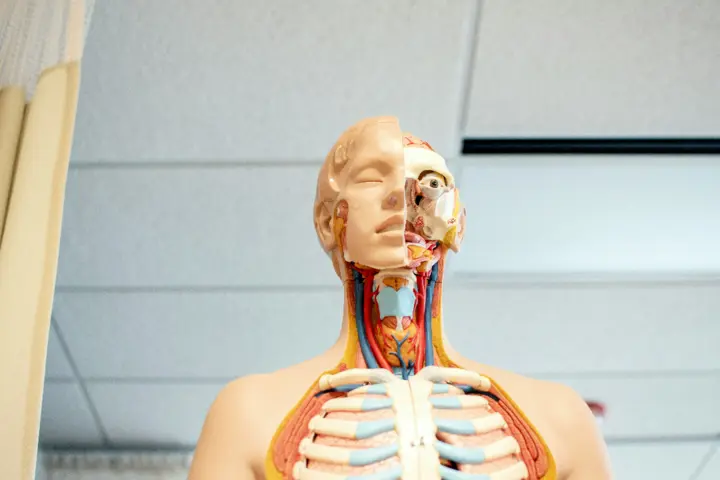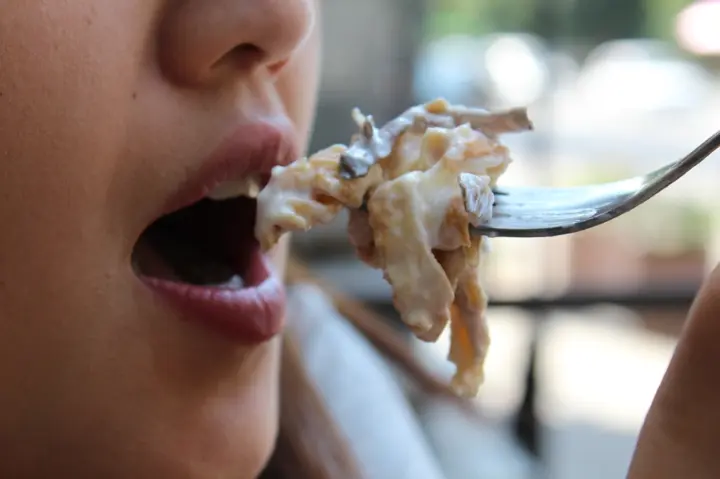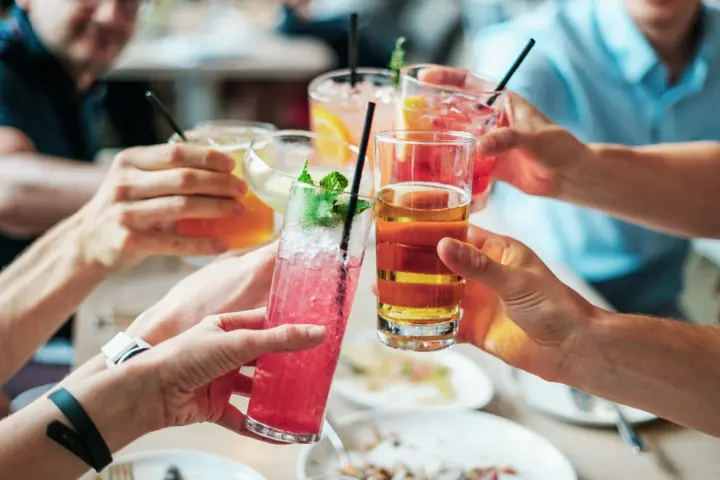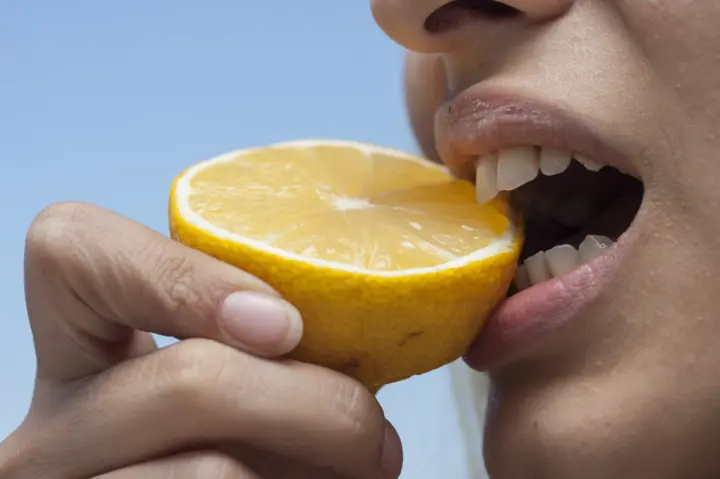What causes hiccups? How to get rid of it?
There are many medical conditions or underlying factors that can lead to hiccups, but they are usually caused by eating or drinking too quickly, as this can cause the stomach to bloat and irritate. This can cause the diaphragm to shrink, leading to hiccups.
Show key points
- Hiccups are usually triggered by eating or drinking too quickly, which can lead to stomach bloating and diaphragm irritation.
- They occur due to involuntary contractions of the diaphragm and intercostal muscles, often accompanied by a closing of the glottis that produces the characteristic hiccup sound.
- While most hiccups are temporary and harmless, persistent hiccups lasting more than two days may indicate underlying medical conditions and should be examined by a doctor.
- ADVERTISEMENT
- Factors such as eating spicy foods, drinking carbonated beverages, sudden temperature changes, or taking specific medications can increase the risk of hiccups.
- Simple habits like eating slowly, avoiding excessive swallowing of air, and consuming food at moderate temperatures can help prevent common hiccup episodes.
- Traditional remedies such as holding your breath, breathing into a paper bag, sipping cold water, or biting a lemon can help stop hiccups by altering carbon dioxide levels or calming nerve irritation.
- Although typically just a mild annoyance, chronic hiccups can lead to more serious issues like insomnia or emotional distress if not properly managed.
Imagine standing in front of your class, about to start a presentation, when a strange sound comes out of your throat, accompanied by a slight tremor in your shoulders and head. You'll very much hope that it doesn't happen again, but it doesn't. So there's a good chance you're having hiccups, and it may take some time before you're ready to talk without interrupting yourself every 15 seconds.
There's no doubt that many of you have had hiccups at an inopportune time at some point in your lives, but the real question is – why do we get hiccups in the first place?
Recommend
Hiccup

Hiccups are by definition rapid bursts of inhalation, which occur as a result of the activity of the intercostal muscles, which are located between the diaphragm and the ribs. This is similar to the normal breathing process. The diaphragm contracts and those muscles help the body draw air into the lungs. However, in the case of hiccups these contractions can be rapid and involuntary, leading to an "hiccup" attack.
At the same time, the larynx also contracts, and there is a complete closure of the glottis, effectively preventing any air ingression. As a result, a small sound is often produced, while the rapid contractions of these muscles can cause slight tremors or tremors in the shoulders, neck and head.
What causes hiccups?

In most cases, hiccups are caused by stomach bloating, which is common if you eat or drink something too quickly. When the stomach becomes swollen, it can push stomach acid back into the esophagus, irritating this part of the body. This irritation causes the diaphragm and hiccups to shrink. You can calm this irritation and stop the occurrence of hiccups by lowering the oxygen level or increasing the carbon dioxide level. Most hiccups are nothing more than discomforts and rarely last more than a few minutes.
However, hiccups can be caused by other things as well, especially if the hiccups persist for long periods of time, sometimes even up to days or weeks of chronic hiccups. If your hiccups last more than two days, it may be time to go see a doctor. These extended episodes of hiccups are likely the result of an underlying illness or health condition that needs to be treated. Damage to the diaphragmatic nerve, which affects diaphragm activity, is often the cause, but some metabolic disorders can also cause this involuntary activity to extend for several days. People who have had a stroke or have asthma may be at higher risk of prolonged hiccups.
For most people, hiccups are an occasional nuisance and can be entertaining, but for people with chronic hiccups, they can cause anxiety, depression, insomnia... Have you ever tried sleeping with hiccups? It's not easy!
The list and details of other neurological, metabolic and physiological causes of hiccups fall outside the scope of this article, but if you regularly have short episodes of hiccups and want to prevent these temporary events, there are a few things you can avoid.
How to get rid of hiccups

If you have an increase in gas in your stomach, there is a high risk of hiccups, so try to eat slower, or eat less. When you swallow, you also add air to your stomach, which can fill your intestines. When you drink soda or beer, it will speed up your rate of hiccups, so drink slowly, allowing your stomach to process food at a reasonable pace.
Eating hot or spicy foods too often can irritate the phrenic nerve and cause hiccups, so make sure your food is at a normal temperature before eating any bite.
Sudden changes in temperature can also cause hiccups, but there's not much you can do about the weather!
Finally, certain medications may increase your risk of hiccups, including corticosteroids, painkillers, barbiturates and benzodiazepines, but be sure to talk to your doctor before making any changes to your medications. If one of your medications causes chronic hiccups that last for hours or days at a time, there may be alternative options.
How to treat hiccups

There are dozens of old wives' tales about ways to get rid of hiccups naturally, including staring at the light, holding your breath, breathing in a paper bag, sipping ice water, biting lemons and gargling with cold water.
As it turned out, many of these conventional treatments are effective, as they can affect the level of carbon dioxide in the body, or reduce nerve and tissue irritation. Breathing in a paper bag, if you have one, is one of the most effective solutions, as this can increase the amount of carbon dioxide in the lungs, allowing the diaphragm to relax, and in this way the rapid muscle contractions will stop. Holding your breath basically does the same thing, but hiccups can often interrupt this process, re-flooding your lungs with oxygen.
No matter what you do, hiccups are something that will happen at some point when you least expect it at all, just like a sneezing attack, and more often than not, you simply have to get rid of it and wait for the irritation to pass!








